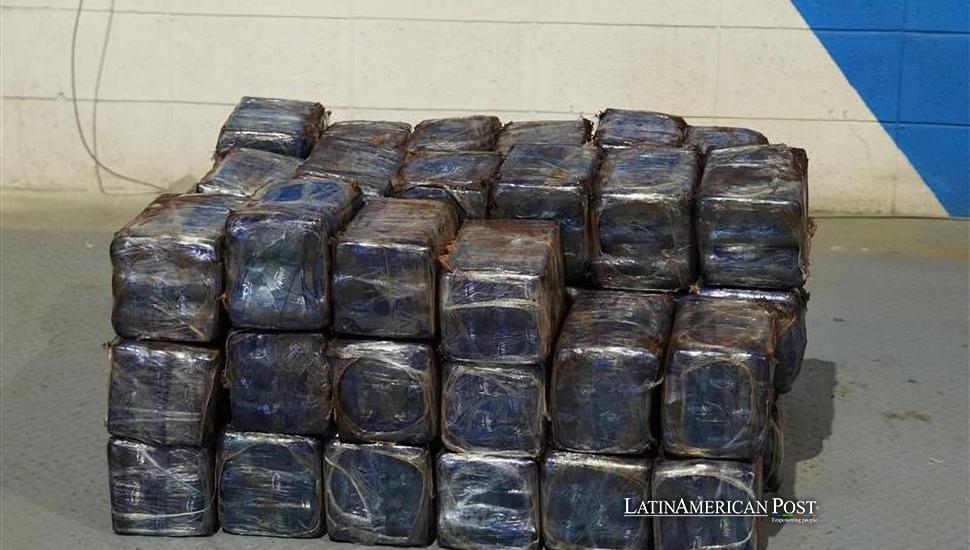France’s “Mexicanized” Drug War Ignores Its Own Consumption Crisis

France’s interior minister warns of a “Mexicanized” narco-state as gang violence surges yet overlooks a critical factor: domestic drug demand. Ignoring the role of consumer culture risks deepening the crisis and undermines real progress in drug policy.
The Real Issue: France’s Blind Spot-on Demand
Interior Minister Bruno Retailleau’s recent declarations about a “Mexicanized” France in response to escalating drug violence spotlight an incomplete narrative. Framing this crisis solely as an invasion of “narco-scum,” as Retailleau labeled traffickers, ignores a key contributor: France’s own rampant drug consumption. While it’s convenient to focus on the external threat of drug gangs, this perspective disregards how demand within France fuels the entire system. The approach is reminiscent of other countries misplaced “war on drugs,” where focusing on supply and criminal networks without addressing internal demand only entrenches the problem.
Retailleau’s language emphasizes a defensive posture but lacks a crucial introspection into why these gangs thrive domestically. The Times reports violence in previously quiet cities like Poitiers, Rennes, and Clermont-Ferrand as a sign of a spreading threat. But this isn’t only due to imported criminal influence—it’s sustained by a thriving, insatiable market for narcotics within France itself. Addressing only gang presence without a plan for reducing demand turns a blind eye to the heart of the problem, leaving the door open for these networks to keep proliferating.
Blaming Traffickers Alone Misses the Bigger Picture
Retailleau’s framing of France’s struggle as a looming “Mexicanization” of the country sidesteps a glaring reality: drug trafficking cannot be sustained without high domestic demand. By likening France’s violence to that of Latin American countries like Mexico, Retailleau implies that the drug problem is something alien or external. Yet France, as one of Europe’s leading consumers of cocaine, amphetamines, and cannabis, clearly has its own responsibility in this crisis.
Overseas, Latin American nations have paid a high price for drug demand from wealthier regions. Instead of learning from these examples, France’s new government appears to be treating drug violence as if it exists in isolation from its own people’s consumption habits. Without a more comprehensive response that includes educational campaigns, rehabilitation programs, and a focus on reducing demand, France risks repeating the same mistakes that fueled the so-called “narco-states” it fears becoming.
A Vicious Cycle: Ignoring the Social Roots of Addiction
Gang violence and crime are not isolated issues; they are connected to deeper socioeconomic problems that contribute to addiction and substance use. Young teenagers, sometimes as young as 14 and 15, find themselves both victims and participants in violent drug networks, serving as foot soldiers and dealers. In Retailleau’s analysis of these youths, described as ‘narco-scum,’ he overlooks the underlying social issues at play. Many young people in France grow up in impoverished communities where drugs seem like a quick path to financial success, mainly when there are few other opportunities available.
Moreover, there are no equivalent social programs aimed at freeing youth from the conditions that lead them to crime, despite the state’s claims of being a counterpower against organized crime. This narrow view of drug trafficking as a ‘supply-side’ crime—focusing solely on repression against traffickers—fails to address the social and economic factors that create demand for this type of abuse. This approach inadvertently reinforces vicious cycles of drug use and violence, as it ignores issues such as income deprivation and family disruption, along with the lack of low-skilled job opportunities. Unless these root causes are addressed, the solutions proposed by Retailleau are likely to exacerbate the drug crisis rather than resolve it.
Learning from Failed Models and Finding a New Approach
France’s response to its drug crisis echoes the rhetoric and methods of America’s failed “war on drugs,” with its emphasis on cracking down on traffickers and high-profile enforcement. But history shows that this strategy, if implemented alone, won’t work. Many countries, including Mexico and Colombia, have shown that attempting to halt the flow of drugs while ignoring domestic demand can backfire, leading to entrenched violence and slight improvement in public health outcomes.
France must reframe its strategy to include demand reduction, public health initiatives, and social reform to move forward. Simply escalating enforcement without addressing the factors driving drug consumption will only create more tension, mistrust, and violence. If Retailleau’s administration is genuinely committed to preventing “Mexicanization,” it should tackle drug addiction as a public health crisis, addressing the underlying causes rather than just targeting the symptoms.
Also read: Argentine Video Game’ Malvinas: The Last Letter’ Revives Falklands Story and Culture
By refusing to acknowledge France’s own drug consumption issues, Retailleau’s policy risks becoming ineffective and counterproductive. A balanced, introspective approach would better serve France’s cities and neighborhoods and honor the lessons from countries that have suffered at the intersection of demand and violence.





